Director of Research
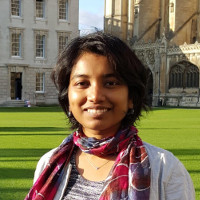 Nazia Mintz Habib is Research Director, and prior to this was Lecturer in Public Policy in the Department of Politics and International Studies at the University of Cambridge. She is also a Senior Research Fellow in the Centre of Development Studies, a fellow of the Isaac Newton Trust and the Cambridge Malaysian Commonwealth Studies Center (MCSC). Before coming to Cambridge, she was a Giorgio Ruffolo Research Fellow in the Sustainability Science Program at the John F. Kennedy School of Government at Harvard University. Her research interests focus on identifying pathways to improve sustainable development in developing countries by scaling up global value chain of primary commodities and catching up on institutional innovations. She studies the political economy sustainable development as a comparative development approach. She has published a monograph on Biofuels, Food Security, and Developing Economies. Along with her academic appointments, Nazia is also involved with the International Food Policy Research Institute (IFPRI) to implement an institutional feasibility study framework (IFS) that she developed. She also leads several knowledge products and dialogues at the United Nations (UN) on sustainable development related thematic areas including inclusive growth strategy, climate change, renewable energy, governance and green economy. Her publications can be found both as working papers for the United Nations and in academic journals on food security, renewable energy, poverty, and climate change and governance systems. Originally from Bangladesh, Nazia received her PhD from the University of Cambridge in Development Studies.
Nazia Mintz Habib is Research Director, and prior to this was Lecturer in Public Policy in the Department of Politics and International Studies at the University of Cambridge. She is also a Senior Research Fellow in the Centre of Development Studies, a fellow of the Isaac Newton Trust and the Cambridge Malaysian Commonwealth Studies Center (MCSC). Before coming to Cambridge, she was a Giorgio Ruffolo Research Fellow in the Sustainability Science Program at the John F. Kennedy School of Government at Harvard University. Her research interests focus on identifying pathways to improve sustainable development in developing countries by scaling up global value chain of primary commodities and catching up on institutional innovations. She studies the political economy sustainable development as a comparative development approach. She has published a monograph on Biofuels, Food Security, and Developing Economies. Along with her academic appointments, Nazia is also involved with the International Food Policy Research Institute (IFPRI) to implement an institutional feasibility study framework (IFS) that she developed. She also leads several knowledge products and dialogues at the United Nations (UN) on sustainable development related thematic areas including inclusive growth strategy, climate change, renewable energy, governance and green economy. Her publications can be found both as working papers for the United Nations and in academic journals on food security, renewable energy, poverty, and climate change and governance systems. Originally from Bangladesh, Nazia received her PhD from the University of Cambridge in Development Studies.
Senior Research Fellows
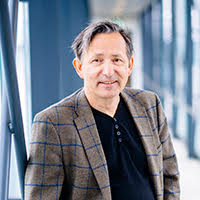 Oluf Langhelle is Professor in political science at University of Stavanger, Department of Media, Culture and Social Sciences, Norway. His research has focused on the concept of sustainable development and follow-up, strategies for sustainable development, environmental politics and policy and transitions towards low carbon societies, focusing on Carbon Capture and Storage (CCS). Current research includes participation in the Conceptual Innovations in Environmental Policy Project (lead by James Meadowcroft and Daniel J. Fiorino) on the concept of sustainable development, and a project on Food Security and international trade, funded by the Norwegian Research Council. Previously Oluf has worked at PROSUS (Programme for Research and Documentation for a Sustainable Society), and IRIS (International Research Institute of Stavanger). Oluf got his Dr. Polit. degree from University of Oslo in political theory. Oluf is also a co-coordinator of the working group on 'Transformations and transitions towards sustainability' within the Earth System Governance (ESG) network.
Oluf Langhelle is Professor in political science at University of Stavanger, Department of Media, Culture and Social Sciences, Norway. His research has focused on the concept of sustainable development and follow-up, strategies for sustainable development, environmental politics and policy and transitions towards low carbon societies, focusing on Carbon Capture and Storage (CCS). Current research includes participation in the Conceptual Innovations in Environmental Policy Project (lead by James Meadowcroft and Daniel J. Fiorino) on the concept of sustainable development, and a project on Food Security and international trade, funded by the Norwegian Research Council. Previously Oluf has worked at PROSUS (Programme for Research and Documentation for a Sustainable Society), and IRIS (International Research Institute of Stavanger). Oluf got his Dr. Polit. degree from University of Oslo in political theory. Oluf is also a co-coordinator of the working group on 'Transformations and transitions towards sustainability' within the Earth System Governance (ESG) network.
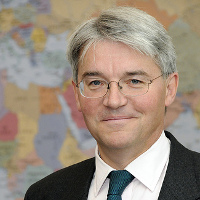
Andrew Mitchell has been the Member of Parliament for Sutton Coldfield since 2001. He was previously the Member of Parliament for Gedling from 1987 to 1997 during which time he held office as a Government Whip and was Minister for Social Security. He also served as a Vice Chairman of the Conservative Party 1992-93. Andrew was educated at Rugby School and studied History at Cambridge University. He was elected as President of the Cambridge Union in 1978. He served in the Army (Royal Tank Regiment) and was a United Nations Peacekeeper in Cyprus before joining Lazard, the international investment bank. In November 2003 he was pointed Shadow Minister for Economic Affairs and from September 2004 he was the Shadow Minister for Police. Following the General Election in May 2005, he was appointed Shadow Secretary of State for International Development. He then served as the Secretary of State for International Development from May 2010 - September 2012 and Government Chief Whip from September – October 2012. Mr Mitchell will advise the Centre on planning a distinguished lecture and public policy forum series on their Adaptive Public Leadership Programme which provides bespoke access to Cambridge expertise for top decision-makers around the world and particularly in developing countries that have made dramatic progress in reform and poverty alleviation. Mr Mitchell's critical contribution will be based on his leadership and experience in public policy, foreign affairs, international development and the African continent.
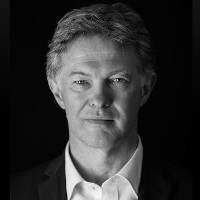 Steve McCauley leads work on the subject of adaptive leadership and how it can be applied as part of The International Development Leadership Programme. He is an executive leadership coach based in London and provides strategic, board and Cabinet and Board level advice to senior leaders in the worlds of government, policy development, politics, business, finance, professional services and the arts. Steve has developed effective methods to cultivate adaptive leadership, a powerful synthesis of some of the best practices in creative and adaptive thinking, strategy consulting and executive coaching. This approach has been used successfully with leaders from a broad spectrum of multinational organisations and in government. It can be applied to any subject that a national leader or head of an international institution would need to address. His background includes working as a senior executive in media, communications, technology and entertainment. He has worked in the United States and ran the international division of a NASDAQ listed digital media company in Los Angeles. He was later an adviser to the BBC in London. Steve McCauley was instrumental in helping the Government of Rwanda to develop its thinking about media transformation. He has provided strategic advice to Ministers about media reform and related policy issues. Steve assembled a team of senior advisers from London that worked in Rwanda from 2010 through late 2015 on media reform. The team helped the Government of Rwanda to develop new ideas about media policy, law, institutions and business development. Rwanda is now in the process of implementing far-reaching policy and legal reforms that hold the promise of necessary transformation in journalism, broadcasting, digital media and the creative industries.
Steve McCauley leads work on the subject of adaptive leadership and how it can be applied as part of The International Development Leadership Programme. He is an executive leadership coach based in London and provides strategic, board and Cabinet and Board level advice to senior leaders in the worlds of government, policy development, politics, business, finance, professional services and the arts. Steve has developed effective methods to cultivate adaptive leadership, a powerful synthesis of some of the best practices in creative and adaptive thinking, strategy consulting and executive coaching. This approach has been used successfully with leaders from a broad spectrum of multinational organisations and in government. It can be applied to any subject that a national leader or head of an international institution would need to address. His background includes working as a senior executive in media, communications, technology and entertainment. He has worked in the United States and ran the international division of a NASDAQ listed digital media company in Los Angeles. He was later an adviser to the BBC in London. Steve McCauley was instrumental in helping the Government of Rwanda to develop its thinking about media transformation. He has provided strategic advice to Ministers about media reform and related policy issues. Steve assembled a team of senior advisers from London that worked in Rwanda from 2010 through late 2015 on media reform. The team helped the Government of Rwanda to develop new ideas about media policy, law, institutions and business development. Rwanda is now in the process of implementing far-reaching policy and legal reforms that hold the promise of necessary transformation in journalism, broadcasting, digital media and the creative industries.
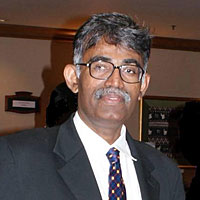 Rajah Rasiah is Professor of International Development at the Faculty of Economics and Administration, University of Malaya. He obtained his doctorate in Economics from Cambridge University in 1992, and was a Rajawali fellow at Harvard University in 2014. He was the first holder of the Khazanah Nasional Chair of Regulatory Studies, and served as Dean of the Faculty of Economics and Administration, University of Malaya in 2009-2010 and 2013-2014. He is a member of the GLOBELICS scientific board, and an advisory member of the Industrial Development Research Centre, Zhejiang University, professorial fellow at UNU-MERIT, senior research fellow of the Technology Management and Development Centre at Oxford University. His policy-oriented work includes research in several countries in Asia, Africa and Latin America. Among the major contributions he has made for the benefit of society include the conceptualization of technology, and its link to development, and methodologies designed to capture clustering, technological capabilities and industrial policies. In recognition of his competence the United Nations Conference for Trade and Development, United Nations Industrial Development Organization, World Bank, International Labour Organization, the World Intellectual Property Organization, United Nations Educational, Scientific and Cultural Organization, United Nations Development Programme, the Asian Development Bank and the Economic Research Institute for ASEAN and East Asia have commissioned the writing of several reports for guiding industrial policy in the developing economies. He was also one of the principal authors of the United Nations Industrial Development Organization’s (UNIDO) 2009 flagship report. His research and policy work has produced over 280 publications in international journals and prestigious press. While the prime focus of his research is on technology and international development, he has also worked extensively on foreign investment, human capital, public health and environment. He is the 2015 recipient of the Celso Furtado prize from the World Academy of Sciences for his seminal contributions in the field of social sciences.
Rajah Rasiah is Professor of International Development at the Faculty of Economics and Administration, University of Malaya. He obtained his doctorate in Economics from Cambridge University in 1992, and was a Rajawali fellow at Harvard University in 2014. He was the first holder of the Khazanah Nasional Chair of Regulatory Studies, and served as Dean of the Faculty of Economics and Administration, University of Malaya in 2009-2010 and 2013-2014. He is a member of the GLOBELICS scientific board, and an advisory member of the Industrial Development Research Centre, Zhejiang University, professorial fellow at UNU-MERIT, senior research fellow of the Technology Management and Development Centre at Oxford University. His policy-oriented work includes research in several countries in Asia, Africa and Latin America. Among the major contributions he has made for the benefit of society include the conceptualization of technology, and its link to development, and methodologies designed to capture clustering, technological capabilities and industrial policies. In recognition of his competence the United Nations Conference for Trade and Development, United Nations Industrial Development Organization, World Bank, International Labour Organization, the World Intellectual Property Organization, United Nations Educational, Scientific and Cultural Organization, United Nations Development Programme, the Asian Development Bank and the Economic Research Institute for ASEAN and East Asia have commissioned the writing of several reports for guiding industrial policy in the developing economies. He was also one of the principal authors of the United Nations Industrial Development Organization’s (UNIDO) 2009 flagship report. His research and policy work has produced over 280 publications in international journals and prestigious press. While the prime focus of his research is on technology and international development, he has also worked extensively on foreign investment, human capital, public health and environment. He is the 2015 recipient of the Celso Furtado prize from the World Academy of Sciences for his seminal contributions in the field of social sciences.
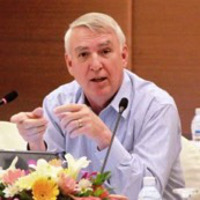 C. Peter Timmer is an authority on agricultural development, food security, and the world rice economy who has published scores of papers and books on these topics. After undergraduate and graduate degrees in economics from Harvard, Timmer served as a professor at Stanford, Cornell, three faculties at Harvard, and the University of California, San Diego, where he was also the dean of the Graduate School of International Relations and Pacific Studies. Timmer is now the Cabot Professor of Development Studies, emeritus, at Harvard University, as well as a non-resident Fellow at the Center for Global Development in Washington, DC. Timmer has over four decades experience in Asia as an academic researcher and policy adviser, including extensive involvement in the development of Indonesia’s food policy from 1970 to 2015. He was a core advisor on the World Bank’s World Development Report 2008: Agriculture for Development, which helped bring the field of agricultural development back into the mainstream of donor activities. He was awarded the Leontief Prize in 2012 for advances in economic thought and delivered the 18th Annual UNU-WIDER Lecture at the UN in New York in 2014, on Managing Structural Transformation: A Political Economy Approach
C. Peter Timmer is an authority on agricultural development, food security, and the world rice economy who has published scores of papers and books on these topics. After undergraduate and graduate degrees in economics from Harvard, Timmer served as a professor at Stanford, Cornell, three faculties at Harvard, and the University of California, San Diego, where he was also the dean of the Graduate School of International Relations and Pacific Studies. Timmer is now the Cabot Professor of Development Studies, emeritus, at Harvard University, as well as a non-resident Fellow at the Center for Global Development in Washington, DC. Timmer has over four decades experience in Asia as an academic researcher and policy adviser, including extensive involvement in the development of Indonesia’s food policy from 1970 to 2015. He was a core advisor on the World Bank’s World Development Report 2008: Agriculture for Development, which helped bring the field of agricultural development back into the mainstream of donor activities. He was awarded the Leontief Prize in 2012 for advances in economic thought and delivered the 18th Annual UNU-WIDER Lecture at the UN in New York in 2014, on Managing Structural Transformation: A Political Economy Approach
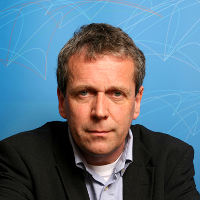 Jerry Timmins is Managing Director of GMT Media Ltd, a Consultancy firm specialising in Leadership and Media across Africa, the Middle East, Asia and Europe. He works at Ministerial level on government Policy and with entrepreneurs and foundations to review existing businesses and launch new ventures. In Rwanda he helped lead the government’s media reform programme from its inception in 2010. In Sierra Leone he supports the government’s efforts to reform the Public Order Act. Until 2010, Jerry was a senior executive on the Board of BBC World Service. His early career at the BBC was as a reporter, producer and then Editor, launching the BBC’s Caribbean Service in 1988. He joined the BBC TV’s Newsnight and worked through the first Iraq war, the fall of the Berlin Wall and the 1992 British General Election. He was appointed to BBC World Service Board in 1994 as first Head of Region Americas and then Africa and Middle East. He launched four new, multi-lingual production centres around the world and the BBC’s only international radio news co-production “The World” – based in Boston. He led the Board’s thinking about digital working and worked with the Director General on a major BBC change project. In 2008 he led the launch of BBC Arabic TV. He also played a pivotal role in commissioning all training for BBC World Service. Jerry was educated at Kingswood School in Bath and then at Oxford University, where he gained a BA Hons degree in English Language and Literature. His track record of innovation and current work with African governments will help the Centre forge new links with decision makers and inform the design, implementation and sustainability of the Centre’s Adaptive Leadership programme.
Jerry Timmins is Managing Director of GMT Media Ltd, a Consultancy firm specialising in Leadership and Media across Africa, the Middle East, Asia and Europe. He works at Ministerial level on government Policy and with entrepreneurs and foundations to review existing businesses and launch new ventures. In Rwanda he helped lead the government’s media reform programme from its inception in 2010. In Sierra Leone he supports the government’s efforts to reform the Public Order Act. Until 2010, Jerry was a senior executive on the Board of BBC World Service. His early career at the BBC was as a reporter, producer and then Editor, launching the BBC’s Caribbean Service in 1988. He joined the BBC TV’s Newsnight and worked through the first Iraq war, the fall of the Berlin Wall and the 1992 British General Election. He was appointed to BBC World Service Board in 1994 as first Head of Region Americas and then Africa and Middle East. He launched four new, multi-lingual production centres around the world and the BBC’s only international radio news co-production “The World” – based in Boston. He led the Board’s thinking about digital working and worked with the Director General on a major BBC change project. In 2008 he led the launch of BBC Arabic TV. He also played a pivotal role in commissioning all training for BBC World Service. Jerry was educated at Kingswood School in Bath and then at Oxford University, where he gained a BA Hons degree in English Language and Literature. His track record of innovation and current work with African governments will help the Centre forge new links with decision makers and inform the design, implementation and sustainability of the Centre’s Adaptive Leadership programme.
